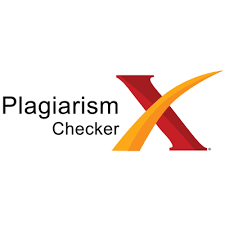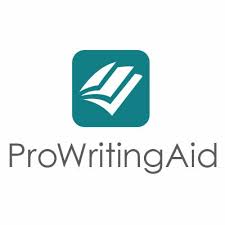INVESTIGATE THE CORRELATION OF SCIENCE LEARNING INTEREST ON SCIENCE PROCESS SKILLS THROUGH SCIENTIFIC APPROACH
DOI:
https://doi.org/10.30740/jee.v4i1p37-45Keywords:
Interest, science lessons, science process skills, scientific approachAbstract
In this study, the learning process was carried out using a scientific approach, then measuring the students' interest in science lessons and science process skills. This study aims to: 1) Determine the level of student interest in science lessons using a scientific approach, 2) Investigate the effect of the scientific approach on students' science process skill levels, 3) Investigate the relationship between interest in science lessons and science process skills. The research method used in this study is descriptive and associative correlational survey research methods. The instruments used in this study consisted of 1) questionnaire on the level of students' interest in science, 2) interview sheets, 3) Science Process Skills Test. The samples of this research were 45 students of AnNizam grade VII. The results showed that the investigation of the majority level of student interest was 52% at a high level, the results of examining the effect of scientific learning on process skills using the independent sample t-test obtained tcount > ttable, namely 6.16 > 1.68. The simple regression investigation found a strong relationship between interest and science process skills of about 0.63.
References
Aqib, Z. 2011. Penelitian Tindakan Kelas untuk Guru SD, SLB dan TK. Bandung: CV. Yrama Widya.
Arikunto, Suharsimi. 2010. Dasar-Dasar Evaluasi Pendidikan (Edisi Revisi). Jakarta: Bumi Aksara.
Akinbobola, A.O., Afolabi, F. (2010). Analysis of Science Process Skills in West African Senior Secondary School Certificate Physics Practical Examination in Nigeria. American-Eurasian Journal of Scientific Research. 5(4): 234-240
Bulunuzz, M., and Jarrett, O.S., 2010. Developing an interest in science : background experiences of preservice elementary teachers. International Journal of Environment & Science Education. 5(2) : 65-84.
Firman, Baedhowi, & Murtini, W. 2018. The Effectiveness of The Scientific Approach to Improve Student Learning Outcomes. International Journal of Active Learning. Vol 3(2) : 86-91
Handayani, G., Adisyahputra, Indrayanti, R. (2018). Hubungan Keterampilan Proses Sains Terintegrasi dan Kemampuan Membaca Pemahaman Terhadap Literasi Sains Pada Mahasiswa Calon Guru Biologi. Biosfer : Jurnal Pendidikan Biologi (BIOSFERJPB), vol 11, No: 1 , 21-31.
Hidi, S., Renninger, K. A., & Krapp, A., 2004. Interest, a motivational construct that combines affective and cognitive functioning. In D. Dai & R. Sternberg (Eds.), Motivation, emotion and cognition: Integrative perspectives on intellectual functioning and development (pp. 89-115). Mahwah, NJ: Erlbaum. Page 32 of 38
Hidi, S., 2006. Interest: A unique motivation variable. Educational Research Review, 1, 69-82, DOI:10.1016/j.edurev.2006.09.001.
Ine, M.E. 2015. Penenrapan Pendekatan saintifik untuk Meningkatkan Prestasi Belajar Siswa Pada Mata Pelajaran Ekonomi Pokok Bahasan Pasar. Prosiding Seminar Nasional.
Kemendikbud, 2013. Diklat Guru Dalam Rangka Implementasi Kurikulum 2013.
Kurniawati, M.W., Anitah, S., & Suahrno, 2017. Developing Learning Science Teaching Materials Based On Scientific to improve students learning outcomes in elementary school. European Journal of Education Studies, 3 (4) : 319 – 329.
Lete, M., Sutopo, & Yuliati, L.2016. Peningkatan Keterampilan Proses Sains Melalui Pembelajaran Discovery Topik Tekanan Hidrostatis. Pros. Semnas Pendidikan IPA Pascasarjana UM. Vol 1: 1020-1032.
Krapp, A. & Prenzel, M. 2011. Research on Interest in Science : Theories, Methods and Findings. International Journal of Science Education. Vol. 33 (1): 27-50
Marjan, J., Arnyana, I. P., & Setiawan, I. N. (2014). Pengaruh Pembelajaran Pendekatan Sainti-fik Terhadap Hasil Belajar Biologi dan Keter-ampilan Proses Sains Siswa MA Mu’allimat NW Pancor Selong Kabupaten Lombok Timur Nusa Tenggara Barat. e-Journal Program Pascasa-rjana Universitas Pendidikan Ganesha, 4(1), 33-40
National Research Council (NRC). A Framework for K-12 Science Education : Practice, Crosscutting,Concepts, and Core Ideas.Washington DC: National Academies Press.
Rifa’i, A., & Anni, C. T. 2012. Psikologi Pendidikan. Semarang: Universitas Negeri Semarang Press.
Sujarwanta, A. (2012). Mengkondisikan Pembelajaran IPA dengan Pendekatan Saintifik. Jurnal Nuansa Kependidikan, 16(1), 75-83.
Slavin, R.E. 2011. Educational Psychology : Theory and Practise. Sixth Edition. Boston. Allyn & Bacon.
Tai, R. H., Liu, C. Q., Maltese, A. V., & Fan, X., 2006. Planning Early for Careers in Science. Science, 312(5777), 1143-1144.
Utanto, Y., Widhanarto, G. P., & Maretta, Y. A. (2017, March). A web-based portfolio model as the students’ final assignment: Dealing with the development of higher education trend. In AIP Conference Proceedings (Vol. 1818, No. 1, p. 020063). AIP Publishing.
Wardani, S., Lindawati, L., &Kusuma, S.B.W. (2017).The Development of Inquiry by Using Android-System-Based Chemistry Board Game to Improve Learning Outcome and Critical Thinking Ability.JurnalPendidikan IPA Indonesia 6 (2), 196-205.
Wonorahardjo, S. (2010). Dasar-dasar Sains Menciptakan Masyarakat Sadar Sains. Indeks: Jakarta









